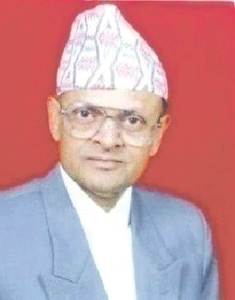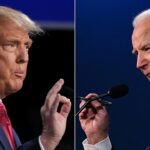By Dirgha Raj Prasai
The aspirations of the people are the best law. To implement the thoughts of the people the political leaders should have to fulfill the needs of people. The people’s oriented leadership always empathizes on the development of the country. Nepal’ is known as the pioneer civilization. Nepal is a sovereign ancient nation with its traditional identity. Nepal is a mini-world. Physically, Nepal is built of the high Himalayas including the highest peak in the world, hills and the low-land Tarai. People belonging to different ethnic groups settle here. The soil in this country varies from place to place. It differs from east to the west and hills to the Tarai. The farmers here produce different edible crops. Whatever crops are available in the nook and corner of the globe, we can produce them in Nepal’s soil.
The Himalayan region of the north is the store of freshwater and it is ecologically very rich. There are almost 100 peaks in Nepal’s Himalayas. More than one million visitors come to Nepal every year for wildlife viewing, river rafting, and mountain climbing. Mount Everest, the highest peak in the world, and Kanchenjunga, the third-highest peak is in Nepal and hundreds of mountaineers from across the world come to conquer them.
This country is blessed by nature with plenty of rivers, lakes, streams and fountains. Nepal has ample sources of water in the form of white gold. Nepal can also be a great store of food-grains if well irrigated and it has a high potential of hydroelectric energy. As Arabian countries are god gifted with sufficient petroleum products, Nepal has sufficient water for hydroelectricity, which can be used to earn foreign currencies. Dense forest, rare animals and more than 800 types of birds plus herbal plants make Nepal a nature-friendly and very rich country in many ways. The Himalayan country Nepal is known as a unique natural, a cultural and adventurous destination in the tourism map of the world. Nepal is a land of eternal attraction, a place where one visit is hardly ever enough. It is a land of colourful cultures, ancient history and people, superb scenery and some of the best walking on earth. Nepal is one of the best tourism destinations in the world. Many of the tourists and the foreigners claim, “Nepal is the most beautiful place in the world.”
Though Nepal is a small country, it is a common home of various ethnic communities and caste groups. The national aspirations can’t be met by belittling any of the castes and sub-castes. Nepal is fortunate enough to have one-cultural nationalism. This culture is made with the components of Hinduism and Buddhism. Tolerance and civilization make our sublime culture. Many visitors come to the pilgrimage to Hindu and Buddhist sacred places. Nepal is a rich and complex mixture of different cultures and traditions, melded over thousands of years into a unique whole.
Yes, Nepal is a small country it is rich in ancient history, evidences various types of accidents, feelings and events. But, it is the misfortune of Nepal that those at the helm of the government were never responsible towards the nation and people. Nepal is the richest in natural and cultural resources.
Due to the traitors’ regime since 2063 BS (2006), Nepal has converted in the ranks of the poorest nations in the world and this is because there are no sincere leaders and people’s representatives. Leaders of the political parties are always tangled up in petty disputes and are carelessly playing with the prestige of the nation. What is more worrisome is that the major parties continue to seem obsessed with fighting over trivial issues. Due to the corrupted and traitors’ regime, Nepal is known as a very poor country. Actually, Nepal is rich in every aspect.
An analyst Bec Ordish writes, ‘Nepal is not a poor country; it is just poorly governed.’ ‘Nepali Congress (NC) and CPN (UML) again seem to be fascinated with dog-eat-dog competition for pouncing upon greater chunk in the share of power. Similarly, the UCPN (Maoist) is again using wayward tactics to meet its own political end. The threat to boycott the CA citing “massive vote-rigging” can, in no way, be termed as a rational political exercise. Other parties who suffered a humiliating defeat in the CA election is also crying foul by backing the Maoists. The parties are also nominating many businessmen as their PR candidates in exchange for the kickback provided to political leaders.’ Of course, in any parliamentary democracy, the instances of political bargaining are not totally unnatural. However, as far as Nepali politics goes, the rule of political haggling violates minimum morality and ethics. It is grossly unethical and unscrupulous political methods that constantly marred the entire nation. Genuine needs and aspirations of general people have often been subjugated to the hedonistic desire of politicos. I think the political scenario would have again been dominated by the absurd melodrama.
Yet, international powers also have no desire to address the factors that led to the insurgency and revolution in the first place – underdevelopment, widespread poverty and inequality, caste and gender discrimination, ethnonational oppression, and so on. What they would like is a pastiche of India, a liberal, parliamentary democratic set up with no real substantive transformation of society. Due to this external influence, Nepal has not been able to engage in autonomous development.
Actually, since 2063 BS, Nepal’s national economy is in disarray due to uninterrupted political instability and this landlocked nation currently depend on foreign aid to fund two-third of its development projects. But for the external financial support plus significant funds sent home annually by the expatriate Nepali population working in the Gulf region and elsewhere, the country would have gone bankrupt long ago. Even agriculture, Nepal’s principal economic activity that contributes to one-third of GDP, is in shambles. Worst still, tourism, the most potential revenue generator, is giving diminishing returns.
Nepal doesn’t have to be poor. It is rich in natural resources- it has one of the highest quantities of water supplies in the world. So why are there water shortages and lack of electricity? Then, if we enrich our level of understanding, many of the problems would be automatically resolved. First of all, the traitors and corrupts from 2063 BS, should be punished. Then, we Nepalese people can adjust our way of life prosperous keeping sovereignty intact reinstating the norms of 1990 constitution for the sake of Nepalese stability and then we the Nepalese people including to implement the symbolic identities of 2047 BS constitution- the constitutional monarchy and Hindu kingdom honouring the national integrity.
Email:dirgharajprasai@gmail.com
People’s Review




